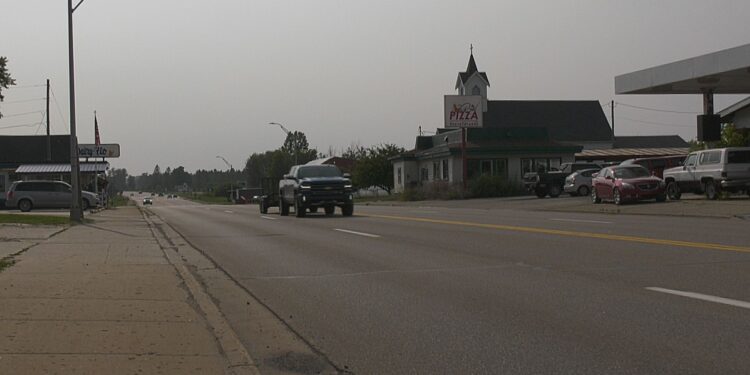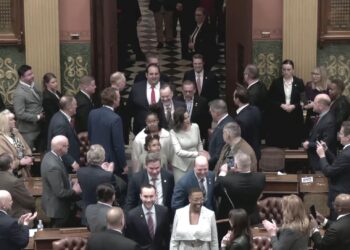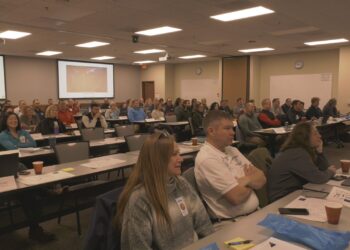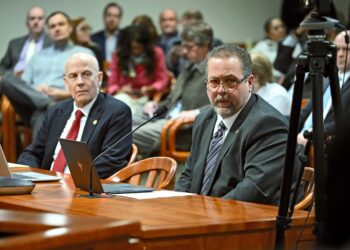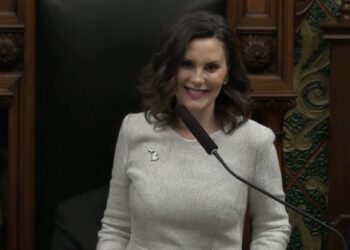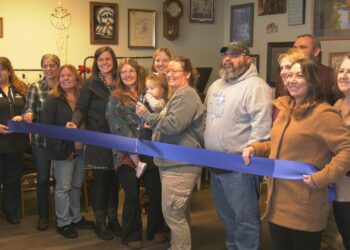RAPID RIVER, Mich. (WZMQ) – Tuesday evening, the Rapid River community continued to discuss the potential of bringing electric vehicle charging stations to the town.
State government trends around the country suggest the automotive industry could be heading toward a full switch to electric vehicles (EV). According to Christian Kreipke, assistant brand manager at Ford Pro, areas like the Upper Peninsula will soon feel the impact of that switch.
“It’s putting in incentives, but they’re also saying, ‘We are mandating by a certain time you have to be EV,'” he said. “Right now the most aggressive are that by 2035, 100% of your fleet will have to be EV.”
Kreipke says at that time, no new vehicles produced will run on gas. He believes encouraging small towns like Rapid River to think about electric vehicle charging now will save them money in the future.
The project involves establishing about 25 charging stations throughout Rapid River–one general hub where up to 20 vehicles could stop for quick charges, and two dozen individual stations that take longer to charge a vehicle. It would also include updating old downtown businesses and repurposing unused properties through the Ford Fund. Kreipke says similar projects typically cost approximately $25 million.
Business owners and residents voiced their questions and concerns at Tuesday’s meeting. Resident Rich Beauvais says he thinks the proposed plan would be a positive thing for Rapid River.
“A lot of these small communities or downtowns need a facelift, and this is a great opportunity for somebody to come in and do that,” said Beauvais. “It would also put something into the city that would get people to stop.”
Beauvais and other attendees sought clarification on exactly where the charging stations would be placed.
“Certain locations within the city might benefit some businesses very strongly, but they could be outside the perimeter of the downtown,” Beauvais said. “My concern would be if those are located outside, would you really be benefiting Main Street proper?”
Another major topic at Tuesday’s meeting was how to manage the increased energy needed to power the charging stations.
“One of the ways that you can do that is supplementing through solar, through wind, or even water,” said Kreipke. “Some way to get the total to 100% that doesn’t rely solely on the electrical line coming in from the power company.”
A few residents questioned whether the bedrock would be too shallow in certain places to put that infrastructure in the ground. Kreipke says if the entire community decides the project would be beneficial, Ford would visit potential sites to determine where they could be established.
If the town moves forward with electric vehicle charging, Kreipke says Ford would begin working right away.
“I would expect that by this time next year, we would have already seen the charging stations put in and started to be implemented,” he said. “There are a lot of factors that can go into how long this is going to take to implement. One of the gentlemen today hit the nail on the head–we have to do this now. All of the other things, like sprucing up the town, can come a little bit down the way.”
Kreipke and community members at both meetings discussed the idea of expanding the bridge that goes across the Whitefish River to include a snowmobile lane. Kreipke is asking Rapid River residents to compile a wishlist of similar projects that they would like to see done along with the charging stations and townwide facelift.
“That’s something that maybe Ford will say, ‘We don’t really do that, but we’ll help partner you with MDOT or the State of Michigan to get the finances.’ That’s what I want to go back to Ford with, the other things people are thinking about that might not be in our wheelhouse but we can help facilitate.”
Rapid River residents who would like to add questions or potential projects for Kreipke to take to Ford can contact the Rapid River Business Association on Facebook. The Business Association will schedule the next public meeting with Kreipke in the coming months.

